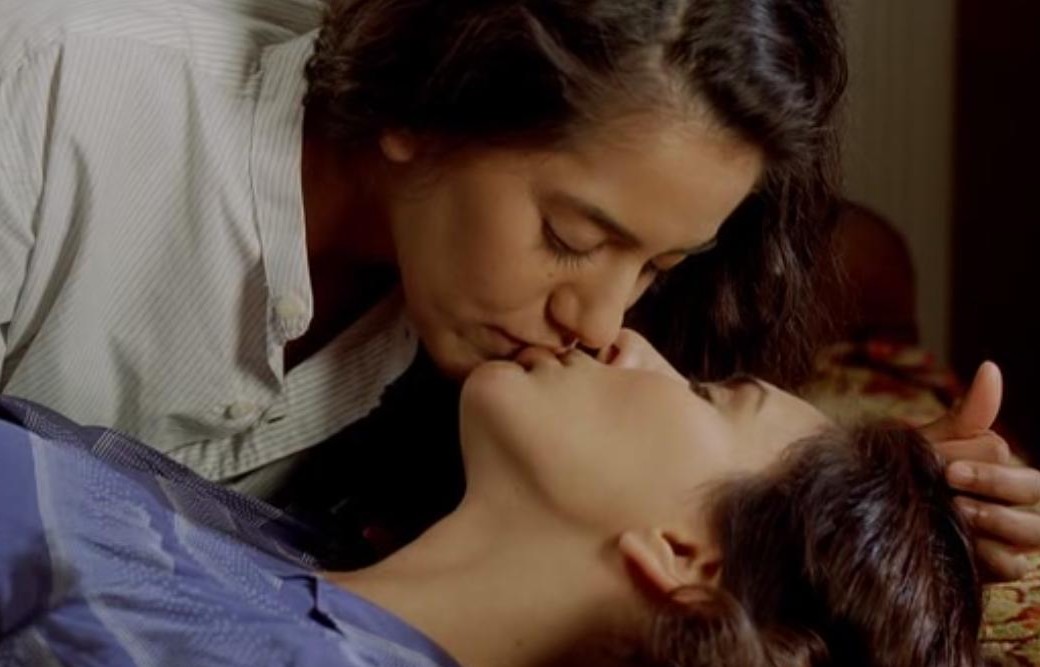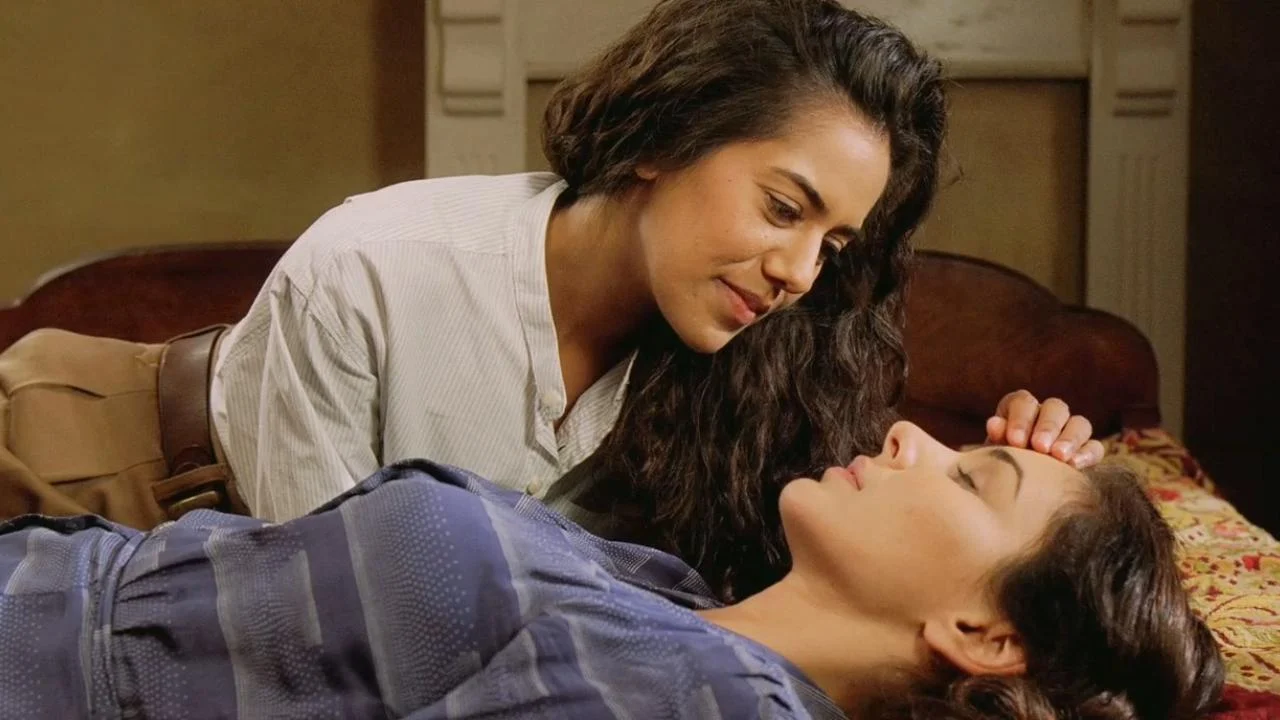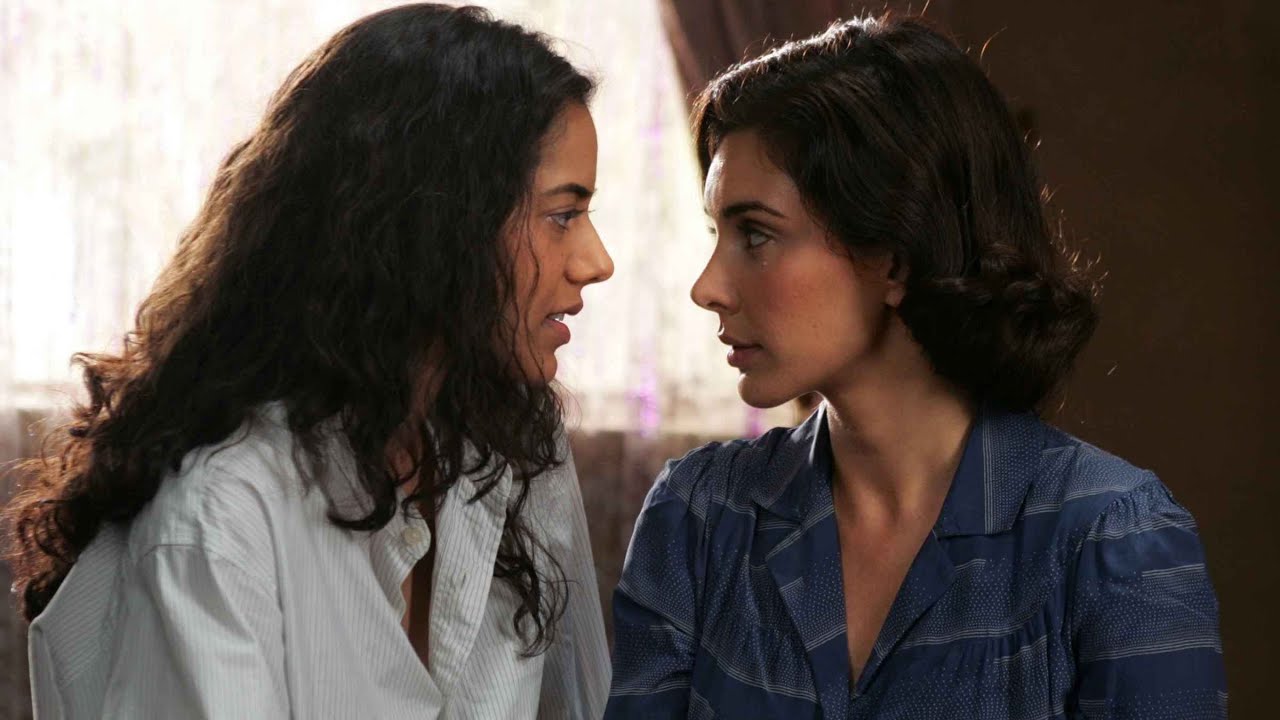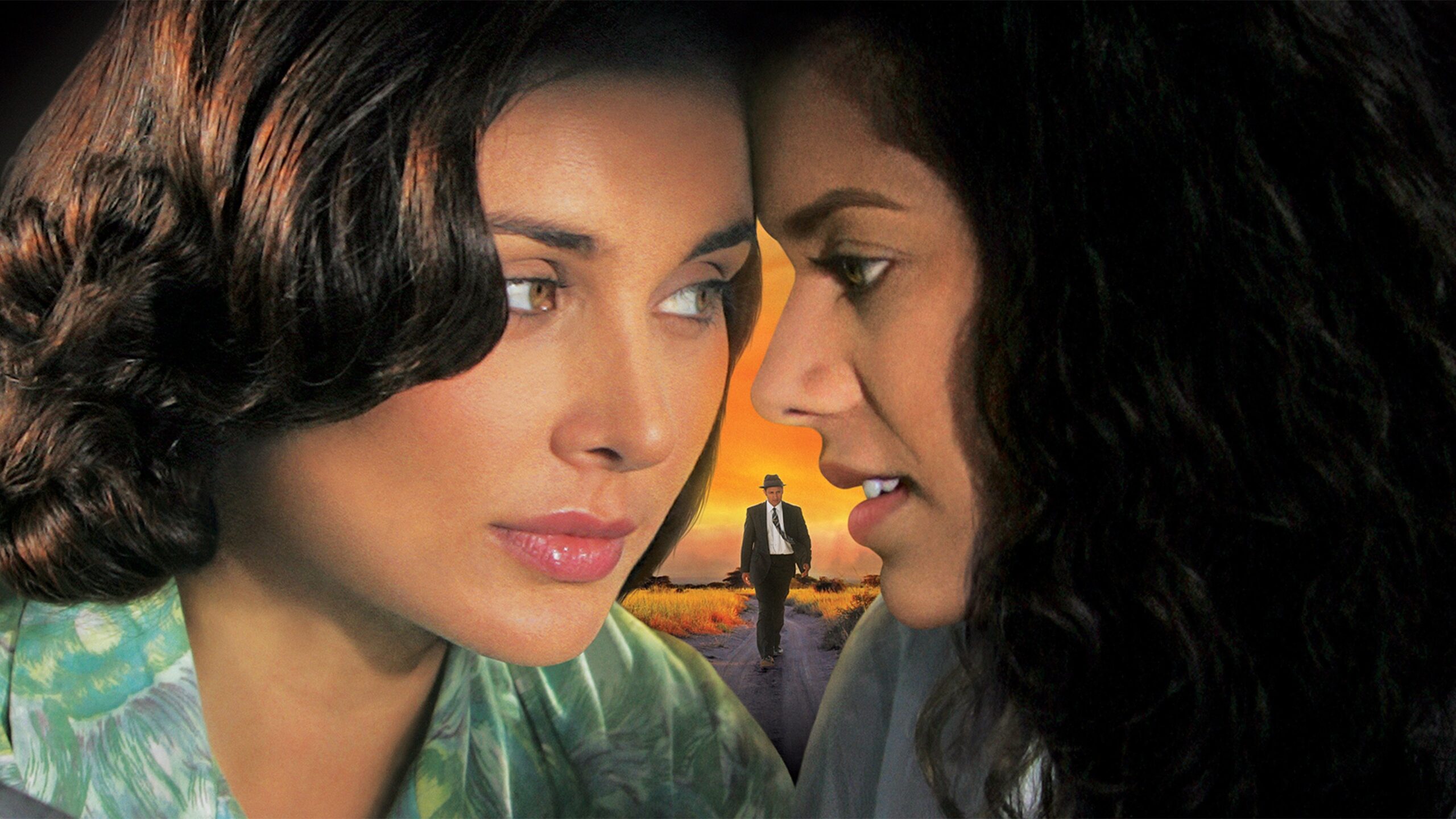The World Unseen (2007) — A Love That Defied Every Rule

Some films are made for entertainment. Others are made to pierce through the fabric of comfort, to gently ask us what we would sacrifice for love. The World Unseen, directed by Shamim Sarif, does not shout. It does not demand attention with spectacle or chaos. Instead, it unfolds like a forbidden letter—carefully, intimately, and with a power that lingers long after the final frame.
Set in apartheid-era South Africa, The World Unseen is a tender yet quietly radical film that speaks to the collisions of race, gender, tradition, and most of all, forbidden desire. It is a story about two women whose lives were never meant to intertwine—and yet, like rivers changing course, their paths bend toward each other with silent determination.
This is not simply a film about love between women. It is about who has the right to live freely. It is about the cost of awakening, of choosing to see a life beyond survival. And it is about the breathtaking ache of loving someone in a world that tells you not to.
Amina: The Woman Who Refused to Bow
From the moment she steps onto the screen, Amina is an anomaly in her society. Played with striking poise by Sheetal Sheth, Amina owns a café where people of different races sit together, sip tea, and speak freely—something illegal under apartheid law. She dresses in trousers, drives her own car, and speaks her mind without apology.
In a time when South African Indians were expected to obey, to keep their heads down, Amina does not. She is not a rebel with noise. She is a rebel with dignity. Her strength is not just in what she does, but in how she lives.
Amina’s resistance is daily, intimate, and dangerous. Her café is not just a place to eat—it is a sanctuary, a political statement, and most importantly, the only space where freedom still breathes. And yet, for all her boldness, there is a quiet solitude about her. She has built her freedom at the price of being an outsider.
Miriam: The Silent Song of Tradition
In contrast, Miriam (played with delicate nuance by Lisa Ray) is a housewife. She wears saris, tends to her children, and fulfills the roles expected of her with quiet grace. Her life is one of repetition, of routines passed down by generations. Her husband is not cruel, but neither is he kind. He is indifferent—focused on power, obedience, and the preservation of appearance.
Miriam is not the type of woman who raises her voice. She is the type of woman who folds it into her hands, swallows it with tea, and tries to forget it ever existed. But that doesn’t mean she is asleep. Miriam feels the pressure of her own spirit, longing to rise from the ashes of tradition. And when she meets Amina, something in her shifts.
At first, she resists. There is fear, guilt, even denial. But there is also curiosity—a haunting sense that her life, so carefully arranged, might not be enough. Amina doesn’t try to convince her. She simply exists. And in doing so, she holds up a mirror to Miriam’s hidden hunger.

The Chemistry of Unspoken Longing
What makes The World Unseen so powerful is its restraint. It never reduces the love between Amina and Miriam to spectacle. Their desire is not consumed in physical scenes, but in the moments before the touch—the glance that lingers too long, the breath held too tightly, the silence that says too much.
This is a love that grows in the spaces society does not see. In the back of a café, in the shelter of a garden, in the stillness of two women walking side by side. It is a love blooming in defiance of laws and expectations. It is not loud—but it is honest.
There is an erotic charge in their interactions, but it is never vulgar. The film acknowledges the power of s.e.xual tension, but it does not exploit it. It understands that real longing is not always about skin on skin—it’s about the ache before skin ever touches.
And in this ache, we see the unbearable truth of forbidden desire: that what cannot be spoken often becomes the most powerful thing of all.
A Landscape of Division
Set against the brutal backdrop of apartheid South Africa, the film is also a political meditation. Segregation laws, racial hierarchies, and gender roles all serve as the prison bars around the characters. Even within the Indian community, division runs deep—between men and women, tradition and modernity, obedience and freedom.
But The World Unseen does not just show oppression—it shows how it survives: through silence, complicity, and fear. It shows the way even those who do not support injustice often uphold it, simply by doing nothing.
In this world, a woman like Amina is dangerous not because she breaks rules, but because she makes others see them. She reminds them that these chains are not natural—that they can be broken. And that is terrifying.
Miriam’s awakening is not a revolution of fire. It is one of slow disobedience. She begins to question. To wonder. To feel. And in a society built on control, even a woman’s feelings can be a threat.

The Cost of Choosing
No love story is complete without conflict. In The World Unseen, the conflict is not just external—it is internal. For Miriam, falling in love with Amina is like stepping off the edge of a cliff. It means betraying her husband, her family, her community. It means choosing the unknown over the familiar.
But perhaps the real betrayal would be to live a lie—to continue folding her spirit into small boxes, to dim her light so others can be comfortable.
And for Amina, loving Miriam is not about conquest. It is about respect. She never pushes Miriam, never demands anything. She simply offers her the chance to be seen, fully and without judgment.
In the end, it is not about whether they run away together or not. It is about the fact that, for the first time, Miriam knows she has a choice.
A Celebration of Female Resistance
This film is not only about two women falling in love. It is about women refusing to be silent. From Amina’s café partner Jacob, who faces his own battle as a gay man, to Rehmat, a wise older woman who quietly supports Miriam, the film is filled with people who have learned to exist within the cracks of society.
But it is the women who carry the soul of the film. Their strength lies not in violence or rebellion, but in the radical act of claiming their own lives.
In a world where men write the rules, The World Unseen becomes a gentle revolution. Not with bullets or slogans, but with tea, glances, words, and love.
It reminds us that every act of love in the face of hate is an act of courage. And that sometimes, the most dangerous thing a woman can do is feel.

A Visual and Emotional Masterpiece
Shot with poetic simplicity, the cinematography captures the sensuality of everyday life: the steam from a teacup, the dust rising from a road, the softness of sunlight on skin. These small moments give the film its weight.
The performances are subtle but unforgettable. Lisa Ray’s Miriam is the embodiment of internal conflict—graceful, restrained, and heartbreaking. Sheetal Sheth’s Amina is equal parts strength and vulnerability, a woman who has built a life on her own terms and pays the price in loneliness.
Together, their chemistry feels real—not manufactured, but discovered. The director, Shamim Sarif, who also adapted the screenplay from her own novel, deserves praise for crafting a film that treats its subject matter with sensitivity and authenticity. Nothing is forced. Everything breathes.
Why This Film Still Matters
Even years after its release, The World Unseen remains a vital film. In a time when stories are often rushed, sensationalized, or flattened into clichés, this film dares to be patient. It dares to show that the most powerful changes happen slowly—through longing, risk, and love.
It is especially important for queer audiences, for women of color, for anyone who has ever been told that their feelings are a threat. It is a mirror for those who have had to hide, a balm for those still searching, and a gentle hand for those afraid to leap.
But even beyond identity, it is a universal film. Because at its heart, The World Unseen is not just about what it means to love another—it is about what it means to finally love yourself.






